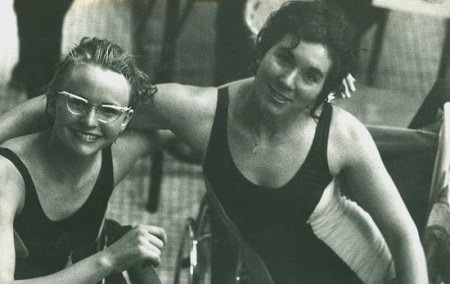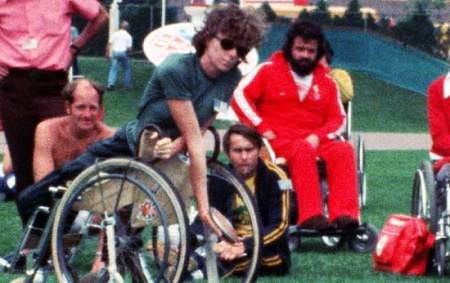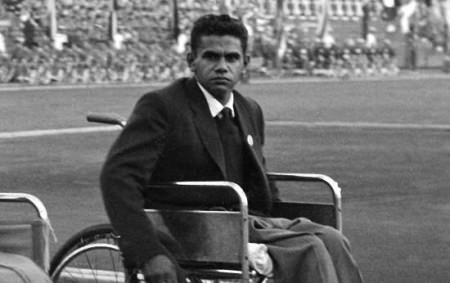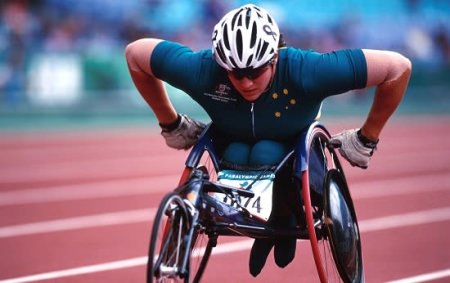Stories of Australian Paralympians
The 1960 Rome Paralympics were the first Paralympic Games. There were 400 Paralympians from 23 countries competing. Among those athletes were Australian’s like Daphne Hilton. There are many Australian Paralympic athletes who broke records, won medals and were pioneers in more ways than one. Here, Inform profiles four such Paralympians.

Dapnhe Hilton (right) is one of Australia’s most accomplished athletes. Image: Paralympics Australia.
Daphne Hilton
Born in the New South Wales town of Harden-Murrumburrah in 1934, Daphne Hilton became a paraplegic after a horse-riding accident when she was 17. She would go on to be one of the most accomplished Australia athletes of all time.
Hilton was the only woman in the 1960 Australian Paralympics team and she played a big part in raising the profile of women with a disability in sport. The 1960 games may have been her first Paralympics but nerves were clearly not a problem. Australia won ten medals in 1960 and six of them were Hilton’s. She won two gold medals in swimming, three silver in archery and athletics and one bronze for shot put.
More medals would follow at the 1964 and 1968 Paralympics. Across the three games, Hilton set a record that is unlikely to ever be broken in either the Paralympics or the Olympics. She won 14 medals in five different sports—athletics, swimming, archery, table tennis and fencing—across three Paralympic Games. It’s an incredible feat.

At the 1972 and 1976 Paralympics Games, Tracy Freeman won 10 medals and broke six world records. Image: Paralympics Australia.
Tracey Freeman
While Tracey Freeman went to only two Paralympic Games, she remains one of Australia’s all-time greats.
Freeman went to the 1972 and 1976 Paralympic Games where she won six gold medals and four silver medals and broke six world records. She was due to compete in the 1980 games but a car accident shortly before ended her hopes of adding to her medal tally. However, she returned to competitive sport in the 1990s, winning medals in national competitions and breaking Australian records. She retired from competitive sport in 1996.
Following in the footsteps of Daphne Hilton, Freeman’s performances paved the way for future Australian Paralympians, particularly for women. Despite the many years that have passed since Freeman competed, her performances ensure she ranks among the greatest Australian athletes.

Kevin Coombs was the first Indigenous athlete to represent Australia at an Olympics or Paralympics. Image: Paralympics Australia.
Kevin Coombs OAM
Despite never winning a medal, Kevin Coombs’ contribution to raising the profile of athletes with a disability makes him an all-time great.
Coombs’ was the first Indigenous athlete to represent Australia at either a Paralympics or an Olympics. He played wheelchair basketball at five Paralympic Games between the inaugural games in 1960 and 1984. He was captain of the Australian men’s wheelchair basketball team in 1972 and 1984 and he was captain of the Australian Paralympic Team in 1980.
So great is Coombs’ contribution to sport for people with a disability, in 2016 Paralympics Australia created a special award named in his honour: the Uncle Kevin Coombs Medal for the Spirit of the Games Award.

Louise Sauvage changed the sport of wheelchair racing forever. Image: Paralympics Australia.
Louise Sauvage OAM
Bursting onto the world stage at just 16, it was clear from the beginning that Louise Savage was going to be a star.
Sauvage won nine gold medals and four silver medals at four Paralympic games between 1992 and 2004. At the 1996 Atlanta Paralympic Games, she won four gold medals and broke two world records. A bursting trophy cabinet is one thing, but Sauvage’s impact on the world of sport for people with a disability is far greater than any medal.
Sauvage changed the sport of wheelchair racing forever. She dominated the sport for more than decade and in doing so raised the profile of Paralympians around Australia and the world. More than that, as one of the first professional athletes with a disability, Sauvage changed public perceptions of Paralympic sport and athletes.
Read more about the history of the Paralympics with our Short History of the Paralympics, click here to read.

